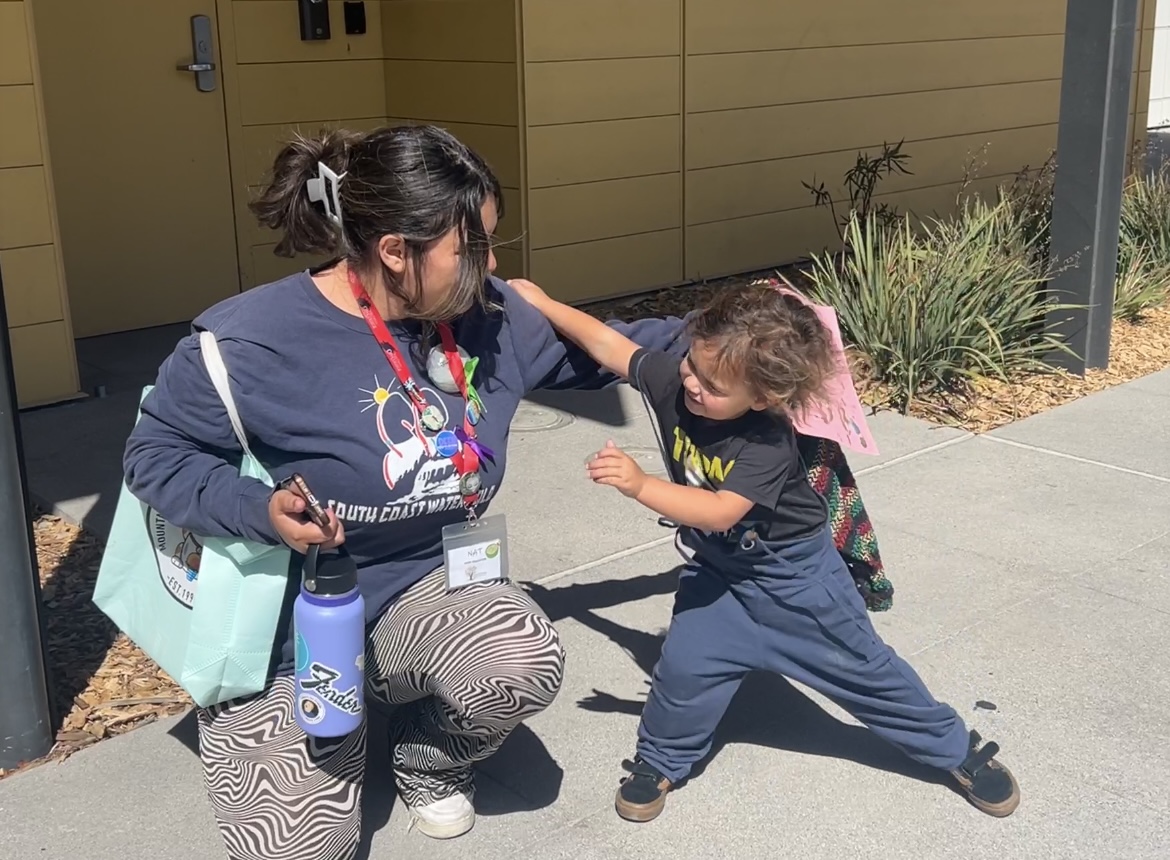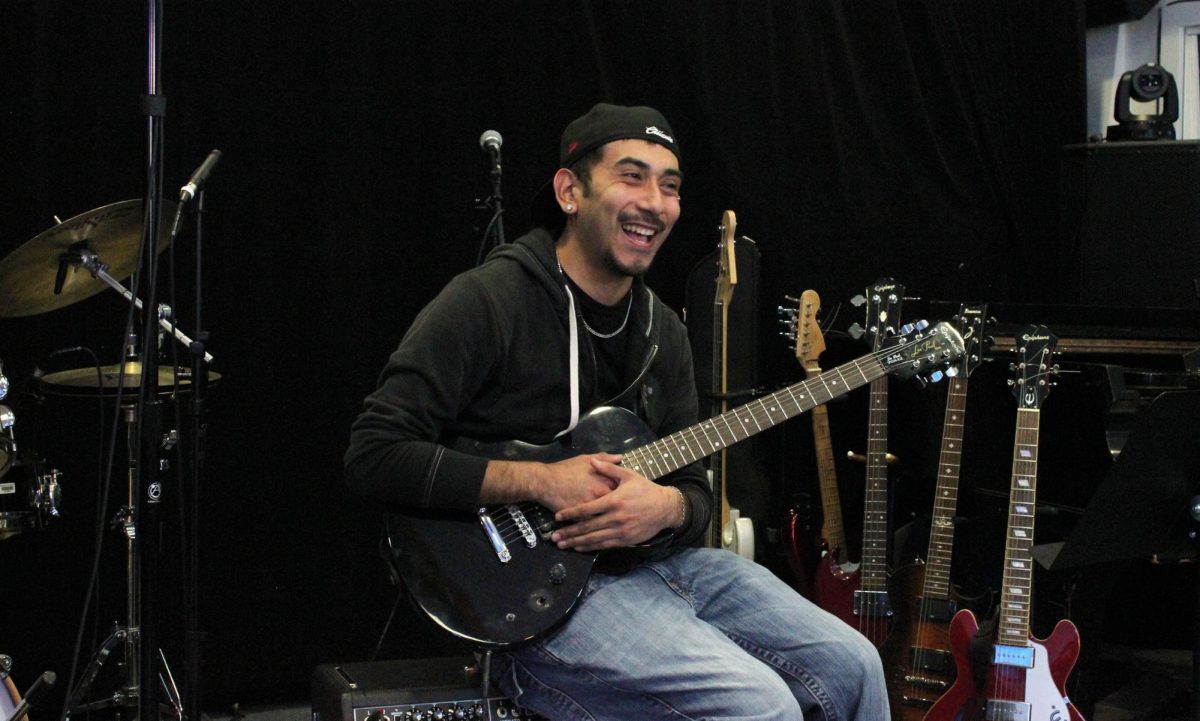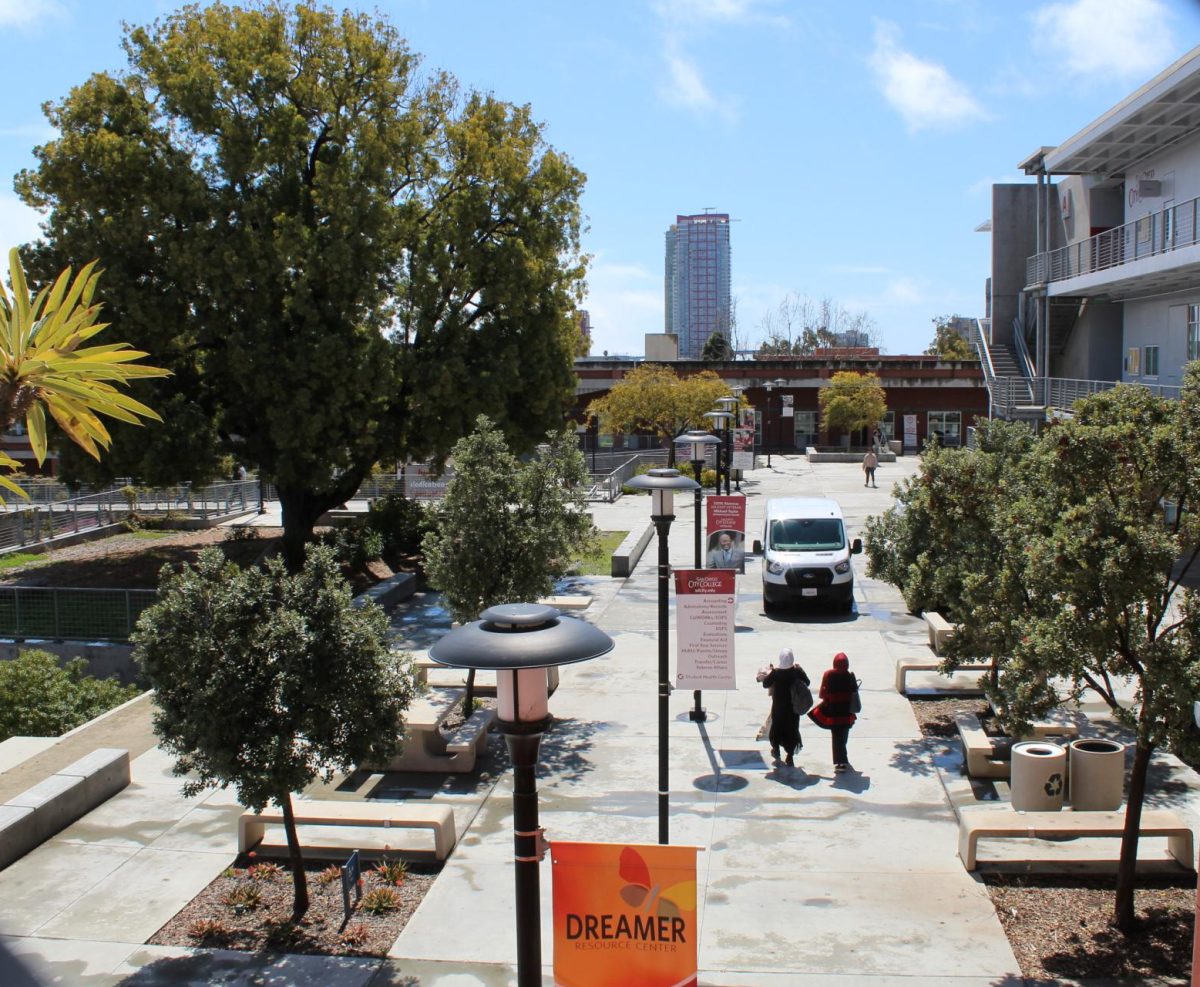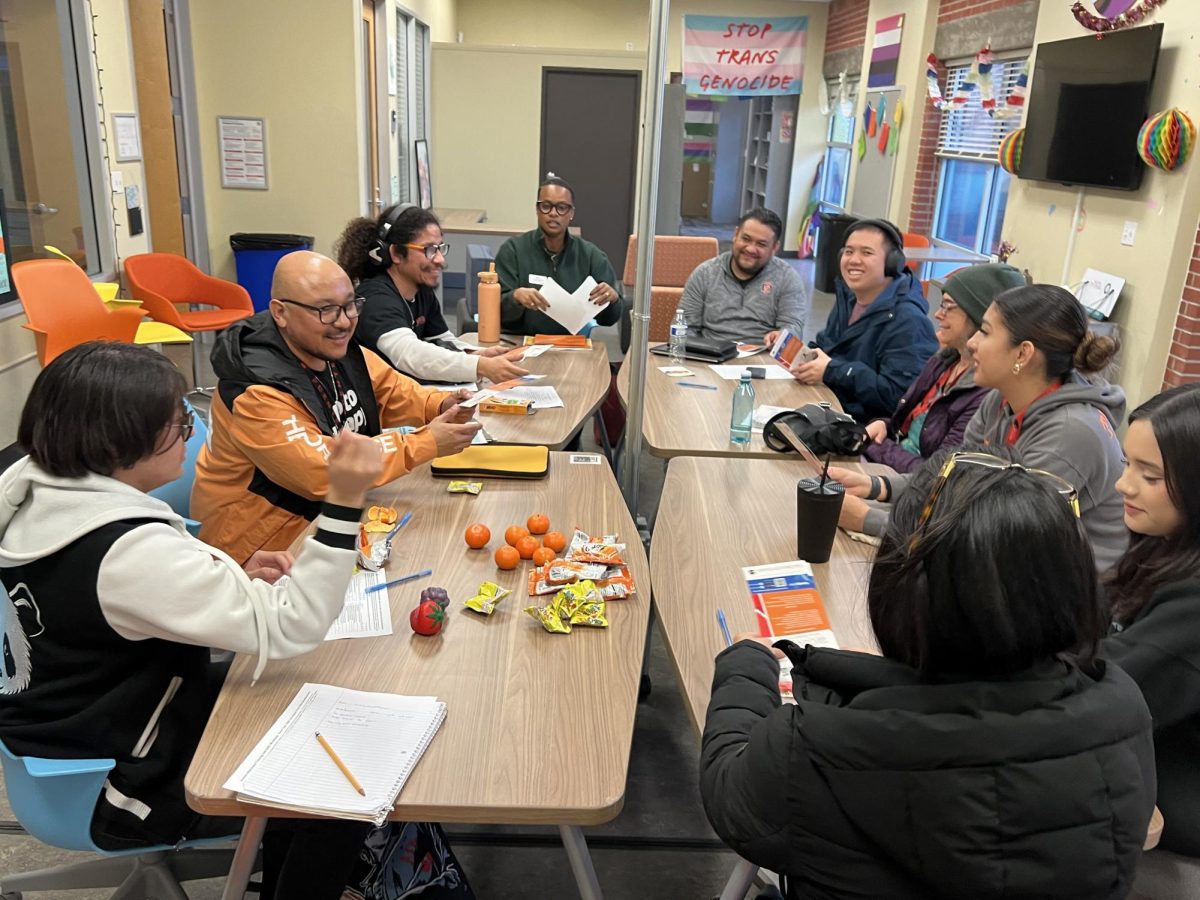After the sold-out debut performance, the cast of the ‘Vagina Monologues’ gathered on stage to host a talk back forum the night of Friday Feb. 18.
In light of the monologues, collected and arranged by playwright Eve Ensler, the actresses addressed questions from audience members and offered personal responses. Main discussion points were both the experience of performing real women’s thoughts about womanhood and their own thoughts on the subject of femininity and of course, their vaginas.
“This is something young girls need to know about themselves,” said one of the actresses, dressed in red and black matching the cast. “Tell (her) the truth,” she said, responding to a question about what the play’s overall message would be for a young man.
Similarly, another male audience member asked what he should do when his daughter felt too shy to talk about her developing sexuality.
“I speak freely about sex,” one actress said. A few of the girls went on to explain the importance of conveying an air of comfort when talking to one’s children about sexuality. “We have to learn to empower ourselves, so we can empower our youth.”
Likewise, a young woman asked the cast if any of them had been transformed by the process of studying and performing other women’s monologues.
Rebekah Ensley, who performed “Because He Liked to Look at It,” admitted to being somewhat reserved when
she first became involved with the production she initially didn’t want her dad to attend because she was, well, talking about sex.
“He’s here tonight,” Ensley said, letting the crowd interject enthusiastically with applause and laughter. “He showed me that I am me,” she said. “It opened up a dialogue and it didn’t make me feel dirty talking about it.”
Again and again, both cast and participating audience proved the significance of continuing a community-wide conversation that is about not just sexuality but honesty and authenticity, as well.
Not unlike Ensley, Professor Elva Salinas, who performed “The Flood,” spoke of her mother’s influence on her life and in her performance. Being raised in a religious home, Salinas expressed the apparent ambivalence and ultimate freedom of becoming a mother who made sure to talk openly about sex with her own children.
In fact, Salinas’ daughter, Aisha Mahler Salinas was among the actresses who shared the stage her.
“Are all of you actresses?” someone asked. While it was unclear who considered themselves stage actresses, one woman explained the impact of performing with or without training.
“It’s a joy to be up here and have this experience,” one woman said.
Another added, “We’re actually telling a real woman’s story.”
With 90 percent of the play’s earnings directed toward a fund for City College Diana Gonzalez’s daughter Crystal, the overall message of the production was one of female empowerment.
“I envisioned her in the audience,” an actress said, “I had to remember who I was doing it for.”








